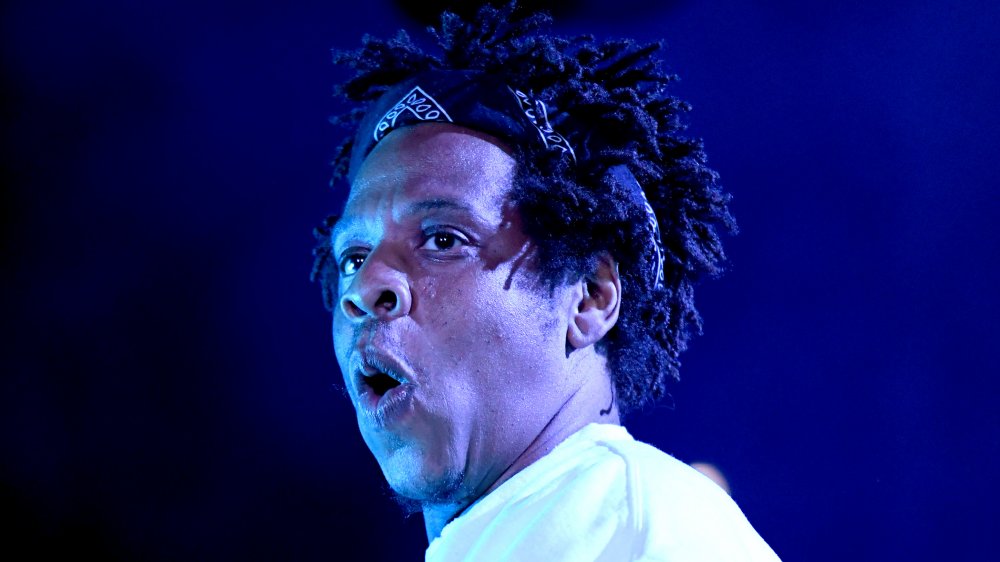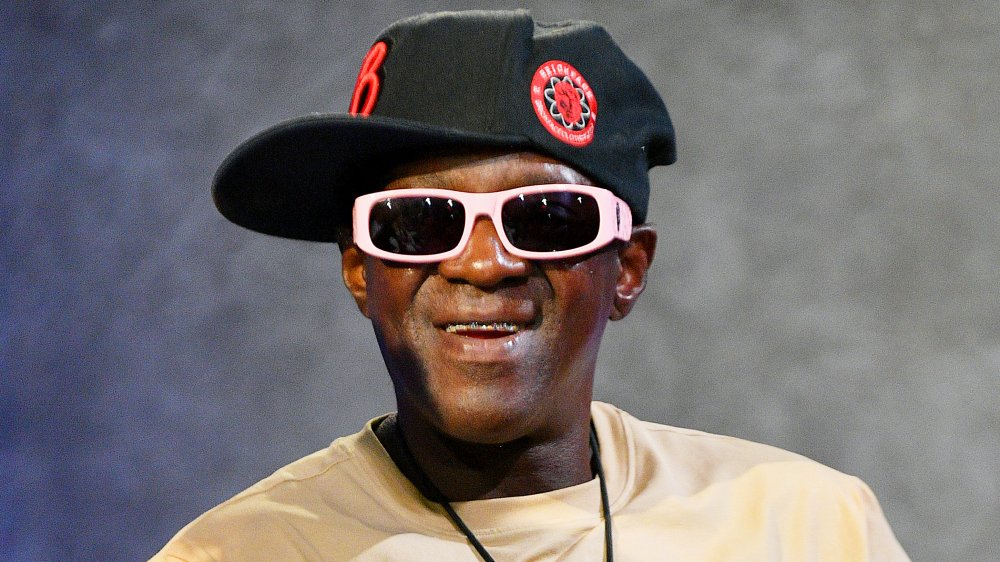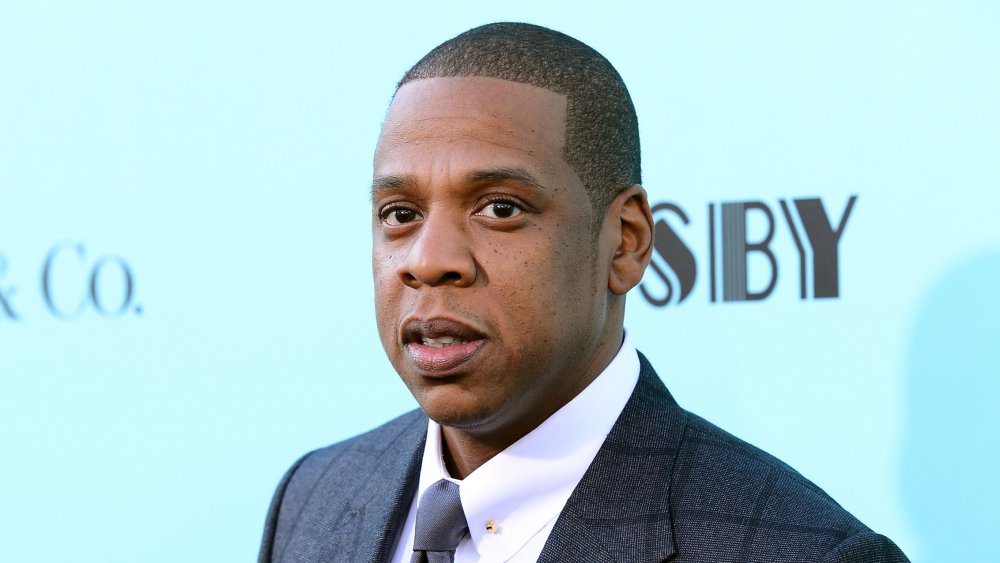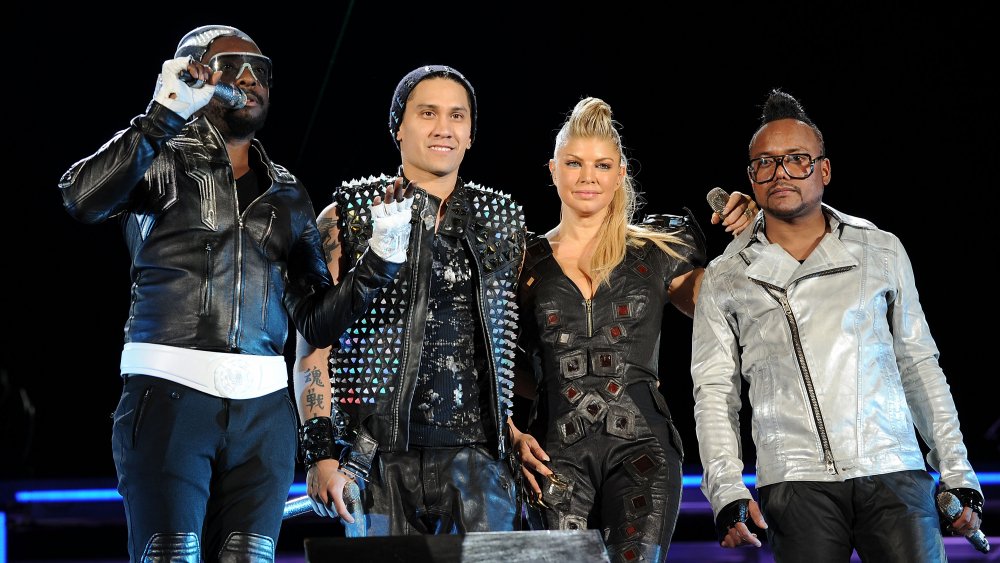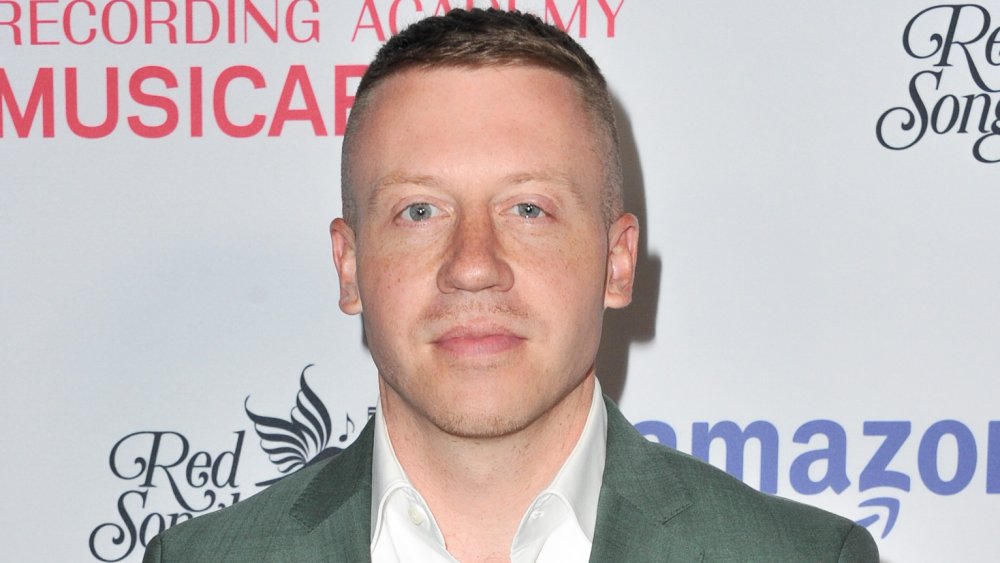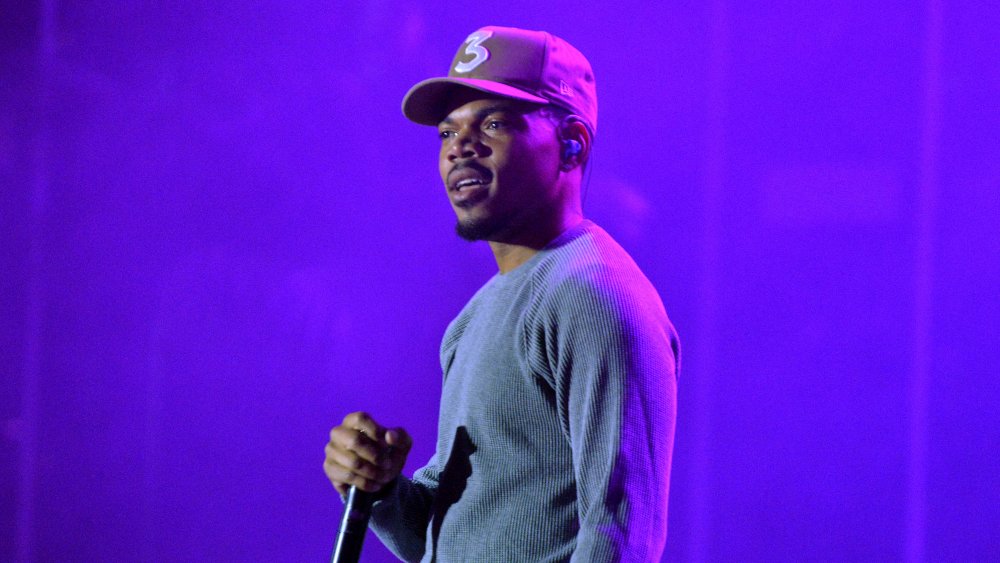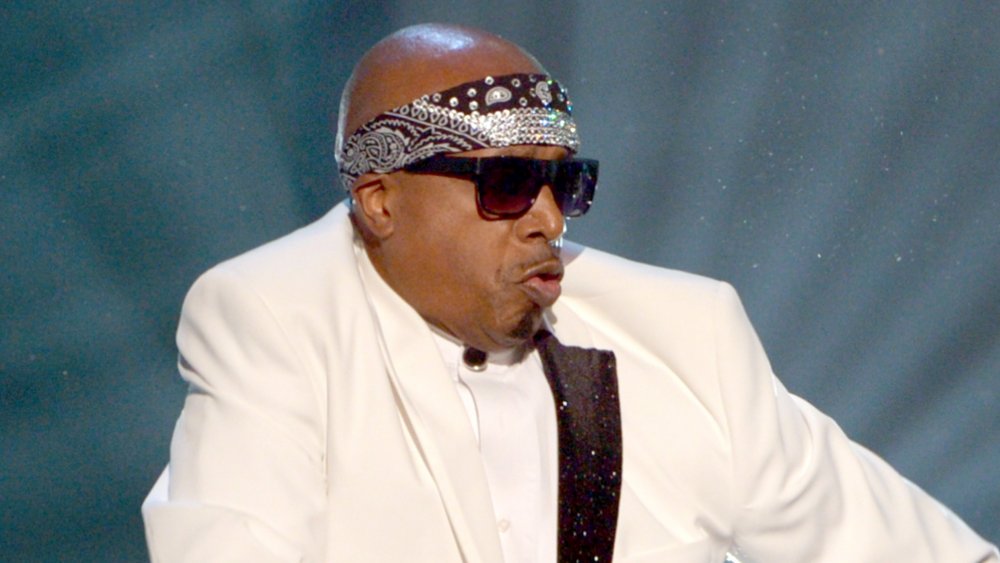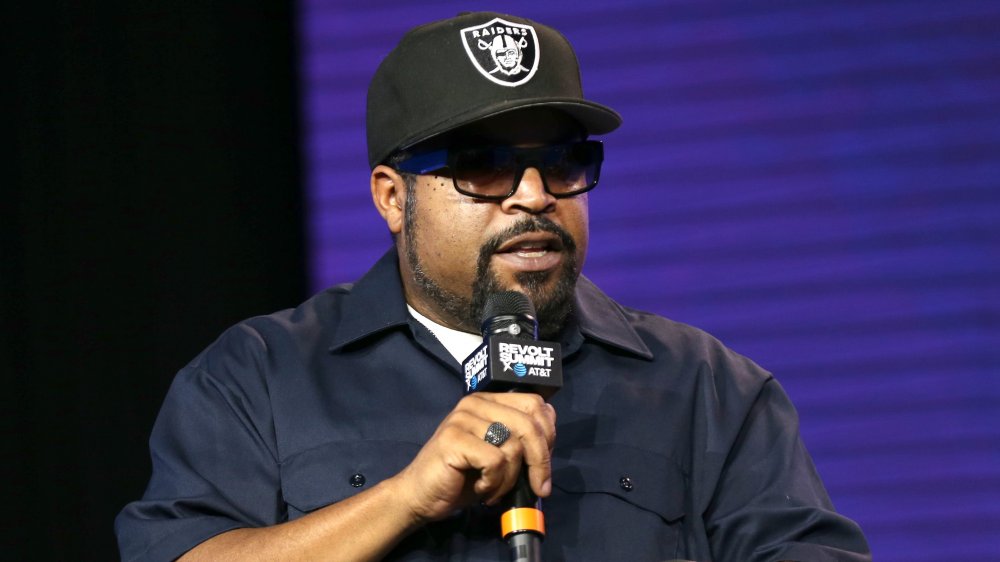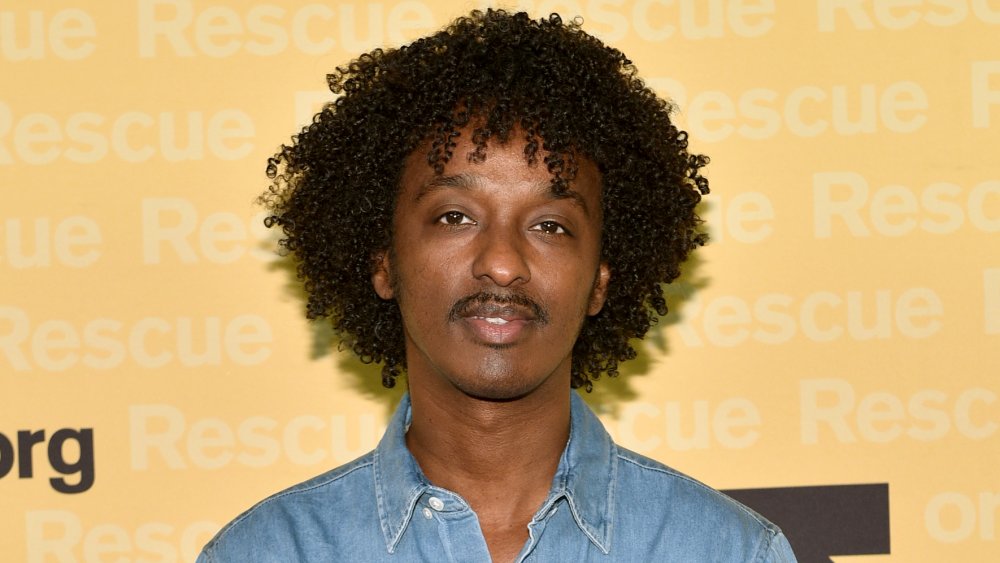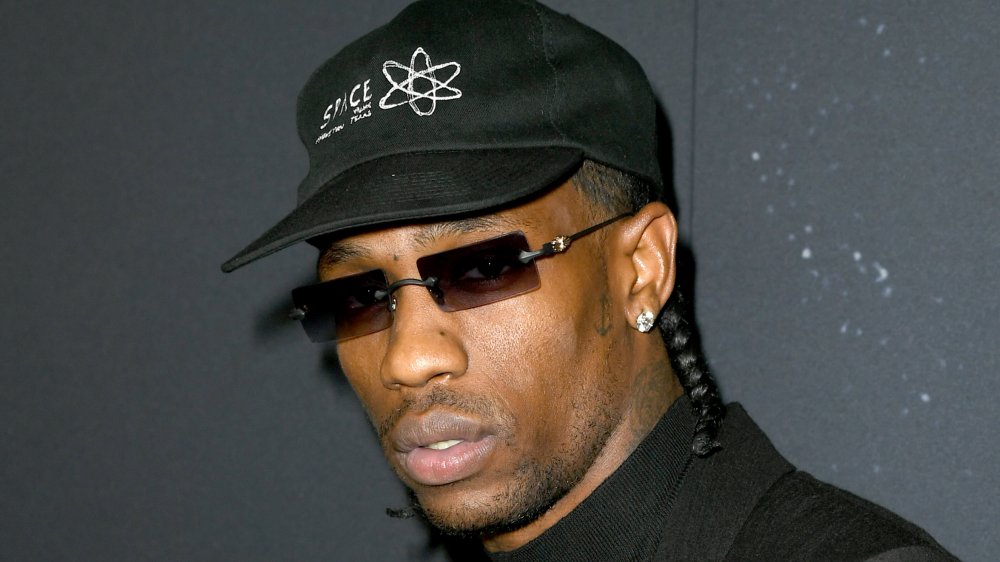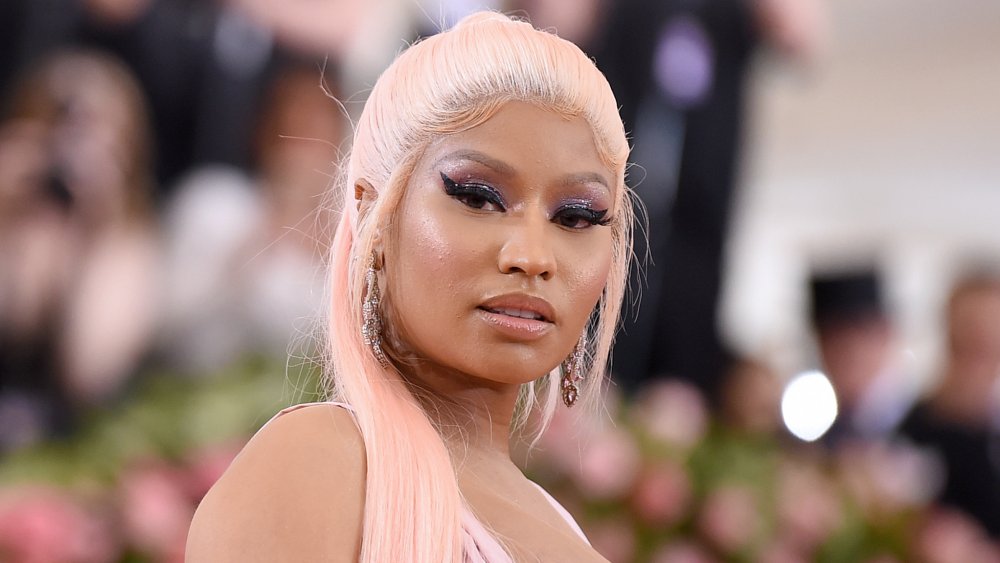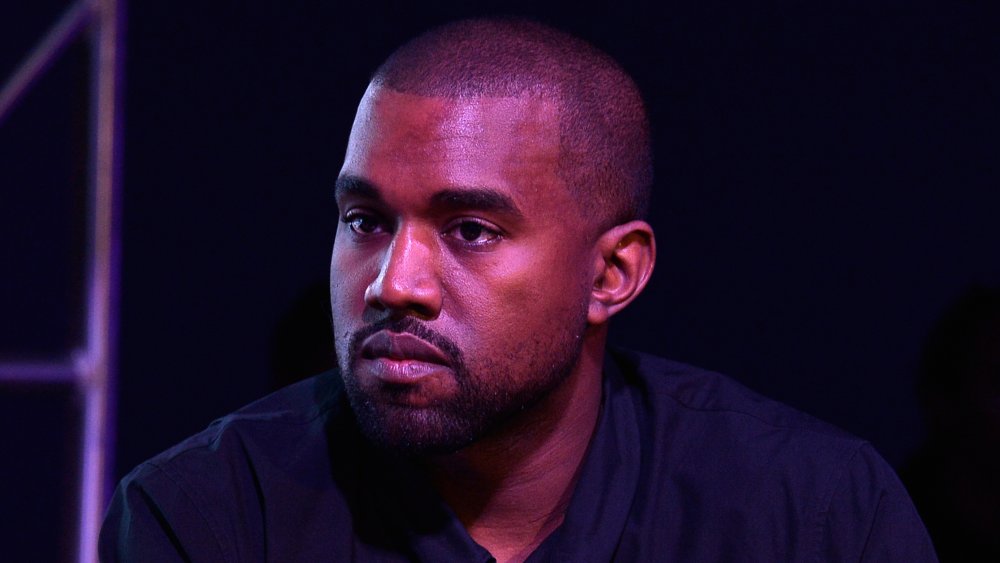Did These Rappers Sell Their Souls For A Paycheck?
The term sellout no longer means what it used to. Historically, it was entwined with political and racial affiliations, according to The Message. But in the hip-hop community, selling out took on the meaning of changing your ways or turning your back on your roots, all in the name of success. According to rappers like Vic Mensa, while selling out was once a major faux pas for rappers, it's become a reality of today's musical climate. "I feel that there's no condemnation of foregoing all possible integrity and authenticity in pursuit of a dollar," Mensa said in an interview with Genius. "That's the state of hip-hop, it's all sold out."
From this modern vantage point, the actions of many so-called sellouts of the past seem relatively tame by today's standards. And yet, some fans might argue that these rappers have altered or even elevated the art form by doing just that. Throughout rap's history, artists have changed their style, their sound, and their morals — and they've faced plenty of criticism for it. And so, we ask: Did the following rappers sell their souls for a paycheck?
The Flavor of selling out
If you looked hard enough, you could find contradictory lyrics in most musicians' discographies. But the change in Flavor Flav from his Public Enemy days to his reality TV career was quite drastic. It all started with The Surreal Life, on which Flav appeared in 2003 as a means of managing his crippling financial woes, per The Daily Beast. From there, however, Flav became a full-fledged reality star, starring on Strange Love and Flavor of Love.
This was the same guy who once rapped about brainless television on "She Watches Channel Zero" (via Genius): "Why don't you just back up from the TV, read a book or something / Read about yourself, learn your culture, you know what I'm saying?" Naturally, even the other members of Public Enemy questioned Flav's choices. "I would be lying if I said that the side of Flav shown on Strange Love doesn't affect what I've wanted our collective to stand for because it does," Chuck D said in 2005 (via Rolling Stone), adding, "His character and private issues are being trashed in front of millions for the mere sake of profit and ratings."
Back in 1988, Chuck D asked Flav about selling out the track, "Caught, Can We Get a Witness," to which Flav replied, "I know if we do, we get the hell out." Though he didn't go as far as calling the modern Flav a sellout, Chuck D once claimed his friend was a victim of "Flavploitation."
Jay-Z moves past kneeling
Black protest and the NFL have long been wrapped up together, ever since the days of all-white teams, segregated stadiums, and fan and player boycotts. In 2016, quarterback Colin Kaepernick added a new notch on the protest belt by choosing not to stand for the National Anthem ahead of a game. He later addressed his decision, stating, "I am not going to stand up to show pride in a flag for a country that oppresses black people and people of color."
As The Undefeated detailed, Kaepernick started a movement. Though he was essentially blackballed from the league, he inspired protests and helped elevate a dialogue about systemic racism and police violence and brutality against black people. That's why it was such a shock when Jay-Z, rapper and icon in the black community, teamed up with the NFL.
In 2019, the NFL announced a partnership with Shawn "Jay-Z" Carter. The rapper would help with the league's social justice efforts, but not everyone was thrilled with the move, according to Vox. Though Jay-Z supported Kaepernick's efforts in the past, many criticized the rapper for jumping on Kaepernick's movement without properly acknowledging it. However, he later defended the deal by telling NBC News, "I think we've moved past kneeling ... I think it's time to go into actionable items."
A black eye on the rap game
Despite being one of the most successful groups in music, the Black Eyed Peas faced more than its share of criticism. In 2011, NPR called the group "Pop's Punching Bag" and stated that the band was "the pop entity that most aggressively embodies the spirit of late capitalism, a post-human quartet whose music is indistinguishable from advertising jingles and whose image has been ingeniously designed to appeal to all markets: part marionette, part video game, part sex toy."
For some, the notion of selling out should be reserved for groups like the Black Eyed Peas, which became known for product placement and branding without actually needing to raise its profile, promote a new project, or simply because it was ironic. As a Slate piece once suggested, "These insatiable revenue-bots are just raking in more coin."
In hindsight, then, it's interesting to note that this is the same group that once rapped, "We the only crew that came original / While a lot of other brothers just mimic the pile / The pile that's only designed for pop charts." That was on "Bringing it Back" from the Bridging the Gap album, which was released just two years before Fergie joined and the alt/hip-hop group turned pop.
Did Macklemore clip his wings to sell out?
It didn't take long for Macklemore to change his stripes. For most of the world, the rapper rose to fame with "Thrift Shop," a song which promoted saving money and shopping wisely. Soon after, the single "Wing$" promoted a similar anti-consumerist message by criticizing Nike. In the song, Macklemore raps, "Look at me, look at me, I'm a cool kid / I'm an individual, yeah, but I'm part of a movement / My movement told me 'be a consumer' / And I consumed it." Yet, while the song's lyrics may be critical of consumerism and the messages promoted by shoe companies and supporters, it appears that Macklemore became more concerned about consistent money than a consistent message.
When the NBA approached him to be part of an All-Star Game ad in 2013, the rapper agreed. Curiously, Macklemore performed "Wing$" in the commercial — the end result, however, was an entirely different song with much of its anti-consumerist elements criticizing shoe culture erased. In fact, the last line of the track was changed altogether. In the original, Macklemore raps, "For a hundred dollars and some change / Consumption is in the veins / And now I see it's just another pair of shoes." In the pro-shoe and NBA ad, however, he edited his own lyrics with, "And this pair, this would be my pair of shoes / Gonna make me fly."
Apple takes a Chance
For years, Chance the Rapper carved out his own niche by releasing music outside of the traditional labels. He celebrated — and was celebrated for — the fact that his music was released for free. "After I made my second mixtape and gave it away online, my plan was to sign with a label and figure out my music from there," he told Vanity Fair in 2017. "But after meeting with the three major labels, I realized my strength was being able to offer my best work to people without any limit on it."
After releasing his first two albums on SoundCloud, Chance posted his third album, Coloring Book, on Apple Music two weeks prior to it hitting the usual platform. Though it was available for free through Apple Music, many questioned how independent the move really was, which inspired to rapper come clean about his financial arrangements.
"Now that more people have tried to discredit my independence," he tweeted in March 2017. "I want to clear things up. @apple gave me half a mil and a commercial to post Coloring Book exclusively on applemusic for 2 weeks." Unfortunately for Chance, it wasn't just his DIY format that was called into question. Even his musical content was later thrown into sellout territory, as some critics felt his fourth album (and first studio release), 2019's The Big Day, saw him move "from agreeable bad boy to vapid pop festival staple"(per Merry-Go-Round Magazine).
MC hammered by critics
MC Hammer is often considered to be one of hip-hop's first sellouts. He was one of the first to have major endorsements and commercials. He even had a cartoon. It wasn't so much the extracurricular activities that drew criticism for Hammer, but rather his success in the pop world that led to the term "sellout" being lobbied about. A Rolling Stone magazine piece from 1990 detailed some of this: "Over the past year, many hip-hop stars have openly shown disrespect for — or 'dissed' — Hammer's musical style, his lyrics and his new-found pop success."
Yet, Hammer wasn't too bothered by the criticism back then. "There's jealousy and envy because my records have not only sold to the black market but also to the pop market," he said. "My competitors are dumbfounded and my success has confused them, especially those who thought their style and images were superior. It's not the fact that anybody hates Hammer or hates his music — they hate the change."
Looking back retrospectively, it appears that Hammer's ill-fated transition from rap to pop became par for the course for many of the industry's most successful rappers today. Which begs the question, should MC Hammer's legacy in hip-hop be reevaluated?
The warm heart of rapper Ice Cube
For much of Ice Cube's multi-decade career, he was a feared figure. The N.W.A.-turned-solo rapper was a gangsta rap original, who was involved in some of rap's most vicious beefs. As the Orlando Sentinel described, Cube had "a chip on his shoulder and ... a sneer that could curdle blood."
Time passed, though, and the rough exterior of Cube's well-worn persona softened. His acting choices, which all started with Boyz N the Hood, also changed. "You won't see me in no action-adventure pictures because acting is a side thing for me," he said in a 1991 interview with The New York Times. Obviously, at that time, he couldn't have predicted he would become more actor than rapper and one day appear in the 2005 action thriller, XXX: State of the Union.
But Cube's most unlikely on-screen choice probably came when he landed the lead role in Are We There Yet? Though he jokingly called his "cuddly" persona in the family film "good acting," the actor-rapper told the Orlando Sentinel that he didn't see this shift as selling out, but rather a sign that he was simply showing more of his true self: "It registers with a lot of people that I'm trying to have a new image."
K'Naan waves the white flag after selling out for success
It was always going to be a challenge for K'Naan to build on his massive hit, "Wavin' Flag," from his 2009 album, Troubadour. The song was one of the anthems of that year and was taken on by Coca-Cola during the FIFA World Cup in 2010. Known for lyrics that highlighted the struggles of his life as a youth in war-torn Somalia, the rapper planned to continue speaking honestly about his life with his third album, but, at the last minute, he chose a different path instead.
In a 2012 opinion piece written for The New York Times, K'Naan detailed how he was convinced to change the thrust of his music to cater to an American audience. "When I write from the deepest part of my heart, my advisers say, I remind people too much of Somalia, which I escaped as a boy," he stated in the piece. "My audience is in America, so my songs should reflect the land where I have chosen to live and work."
In a quest for success, the rapper listened. He changed many of topics and even the names of his characters. "I had made an album in which a few genuine songs are all but drowned out by the loud siren of ambition," he wrote. "Fatima had become Mary, and Mohamed, Adam." This left K'Naan with music of which he wasn't all that proud and didn't recognize.
Rapper Travis Scott feels full-time pressure over halftime
When Travis Scott was named as one of the headliners of the 2019 Super Bowl halftime show, it caused quite the stir in the hip-hop and black community. According to The Daily Beast, Scott's agreement to perform alongside Maroon 5 stood in direct contrast of those who refused the NFL gig in solidarity with Colin Kaepernick. After all, this was right in the midst of the Kaepernick movement.
The criticisms were immediate. One of Scott's peers, Meek Mill, tweeted, "For what???" He then added, "He don't need that he on fire already! Stay strong in this s**t!" According to Variety, Jay-Z reportedly pressured Scott to reconsider, though HOV would later explain that his main problem was that he didn't "see any reason for him to play second fiddle to anyone that year."
Shortly after the controversy hit, Variety suggested that Scott consulted with Kaepernick about the performance. However, Nessa Diab, Kaepernick's longtime girlfriend, wasn't having any of that and posted a series of tweets disputing those claims. This included one post that pictured the dictionary definition of "sellout," stating, "If you are with them, then you are definitely not with us."
Angolan Lives Matter
When Nicki Minaj announced that she would be performing in Angola in 2015, she drew some criticism because the show was funded by the communications company Unitel, an organization owned in part by the ruling controversial dos Santos family.
Thor Halvorssen, the president of the Human Rights Foundation, released a statement questioning her decision. "Nicki Minaj is a global artist," he said (via The New York Times). "There is no good reason for her to do business with the corrupt Angolan dictatorship and endorse the ruler's family company."
According to The National Post, the dictator has been accused of numerous instances of corruption and human rights abuse. For the Human Rights Foundation, the $2 million Minaj received for the concert highlights a hypocrisy in her beliefs. "Minaj's payday is all the more jarring given that she joined the chorus of the Black Lives Matter movement," Halvorssen wrote (via The National Post). "It appears that when those black lives happen to be in Angola they matter less than a pay cheque from a dictator."
Minaj wouldn't be persuaded. She did, however, send out a tweet in response to the criticism, writing, "Every tongue that rises up against me in judgement shall be condemned."
Kanye West goes East
It's quite possible that Kanye West was unfamiliar with the works of Kazakhstan's President, Nursultan Nazarbayev, when he was offered $3 million to perform at the leader's grandson's wedding in 2013. So, he went and performed at the ceremony and made little noise about it.
When a video of the performance was posted to social media, however, the rapper's decision generated some controversy. Thor Halvorssen, the president of the Human Rights Foundation, was particularly vocal about it. "Kazakhstan is a human rights wasteland," he said in a statement (via NPR). "The regime crushes freedom of speech and association; someone like Kanye, who makes a living expressing his views, would find himself in a prison under Nazarbayev's rule."
While the rapper didn't let human rights get in the way of his show, not all performers were as forgiving. In 2011, Sting cancelled a scheduled performance in Kazakhstan, after it was revealed to him that striking oil workers in the country were detained unfairly. "Hunger strikes, imprisoned workers and tens of thousands on strike represents a virtual picket line which I have no intention of crossing," he said in a statement (via BBC).

